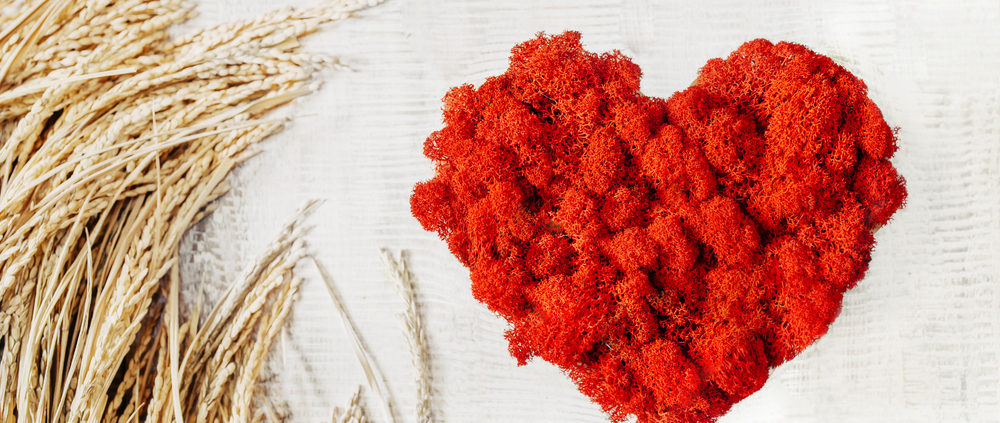Is Celebrating Valentine’s Day Permissible?
Answered by Shaykh Irshaad Sedick
Question
Is it permissible to celebrate Valentine’s Day, such as exchanging gifts with one’s spouse, having an outing, etc.? I have heard this celebration is rooted in the Christian tradition and is impermissible to celebrate, but I am not sure of this.
Answer
In the Name of Allah, The All-Merciful, The Especially Merciful.
The idea of having a special day to celebrate the lawful love shared in a loving marriage by exchanging gifts and enjoying a special meal, etc., is permissible [Dar Al-Ifta Al-Missriyya]
Due to the extra-Islamic origins of Valentine’s day, the plethora of lewd practices associated with its celebration, the perceived resemblance of the practices of cultures often contradictory to Islam, and the advice of many scholars against celebrating Valentine’s day, it is better for Muslims to choose days that are free of doubts, to hold such celebrations, and Allah knows best.
The Origin of Valentine’s Day
Legends vary on the day’s origins, but the general story is that it was originally a pagan celebration. The most famous story revolves around a Roman priest, Valentine, who was martyred during the reign of Emperor Claudius II. For reasons over which there is a difference of opinion, the emperor banned all marriages and engagements in Rome. In defense of the divine union, Valentine defied the emperor and married couples secretly.
When Valentine’s actions were discovered, he was arrested and put to death on February 14. Legend has it that before his execution, Valentine left a farewell note to the jailer’s daughter, who had become his friend, signed “From your Valentine.” February 14 became a day to celebrate love and exchange love messages, poems, and gifts. [Dar Al-Ifta Al-Missriyya]
Love in Islam
Islam is the religion of love, mercy, piety, and maintaining relations. It promotes all kinds of love. One of the most important obligations upon Muslims is to become the ambassadors of Islam, showing its beauty through manners, words, and actions.
Marital Love
The love between a man and a woman is the first kind that comes to mind when we speak of love. Rather than prohibiting this kind of love, Islam encourages it within the sanctity of marriage. The foundation of marriage —love, compassion, respect, forgiveness, and understanding — is found in the Quran, “And of His signs is that He created for you from yourselves mates that you may find tranquillity in them; and he placed between you love and mercy. Indeed, in that are signs for a people who give thought.” [Quran, 30:21]
Love for Others
Islam encourages us to always extend affection and love to each other. Anas Ibn Malik (Allah be pleased with him) narrated that the Prophet (Allah bless him and give him peace) said: “None will taste the sweetness of faith until he loves a person only for the sake of Allah until he would rather be thrown in the fire than to return to unbelief, and until Allah and his messenger are more beloved to him than anything else.” [Agreed Upon]
Abu Hurayra (Allah be pleased with him) reported: The Messenger of Allah (Allah bless him and give him peace) said: “Verily, Allah will say on the Day of Resurrection: Where are those who love each other for the sake of my glory? Today, I will shelter them in my shade on a day when there is no shade but mine.” [Muslim]
Exchanging Non-Religious Greetings and Gifts
Muslims are required to treat everyone with piety and kindness, including non-Muslims. God allows us to maintain good ties with non-Muslims, exchange gifts with them, or treat them kindly. He says, “God does not forbid you from those who do not fight you because of religion and do not expel you from your homes – from being righteous toward them and acting justly toward them. Indeed, God loves those who act justly” [Quran, 60:8]
“And when you are greeted with a greeting, greet [in return] with one better than it or [at least] return it [in a like manner]” [Quran, 4:86]
“And do not argue with the People of the Scripture except in a best way, except for those who commit injustice among them, and say, “We believe in that which has been revealed to us and revealed to you. And our God and your God is one; we are Muslims [in submission] to Him.” [Quran, 29:4]
Islamic Celebrations
While Muslims are not restricted to only Islamic religious celebrations, we should remind one another that Islam’s celebrations, especially Eid, should be our best and most celebrated occasions. Traditional Muslims have also celebrated the Mawlid of the Prophet (Allah bless him and give him peace) for hundreds of years. Extra-Islamic celebrations will not be needed when Muslims observe and aggrandize their own cultural celebrations. However, they remain lawful as long as they don’t contradict Sacred Law, and Allah knows best.
[Shaykh] Irshaad Sedick
Checked and Approved by Shaykh Faraz Rabbani
Shaykh Irshaad Sedick was raised in South Africa in a traditional Muslim family. He graduated from Dar al-Ulum al-Arabiyyah al-Islamiyyah in Strand, Western Cape, under the guidance of the late world-renowned scholar, Shaykh Taha Karaan.
Shaykh Irshaad received Ijaza from many luminaries of the Islamic world, including Shaykh Taha Karaan, Mawlana Yusuf Karaan, and Mawlana Abdul Hafeez Makki, among others.
He is the author of the text “The Musnad of Ahmad ibn Hanbal: A Hujjah or not?” He has served as the Director of the Discover Islam Centre and Al Jeem Foundation. For the last five years till present, he has served as the Khatib of Masjid Ar-Rashideen, Mowbray, Cape Town.
Shaykh Irshaad has thirteen years of teaching experience at some of the leading Islamic institutes in Cape Town). He is currently building an Islamic online learning and media platform called ‘Isnad Academy’ and pursuing his Master’s degree in the study of Islam at the University of Johannesburg. He has a keen interest in healthy living and fitness.
